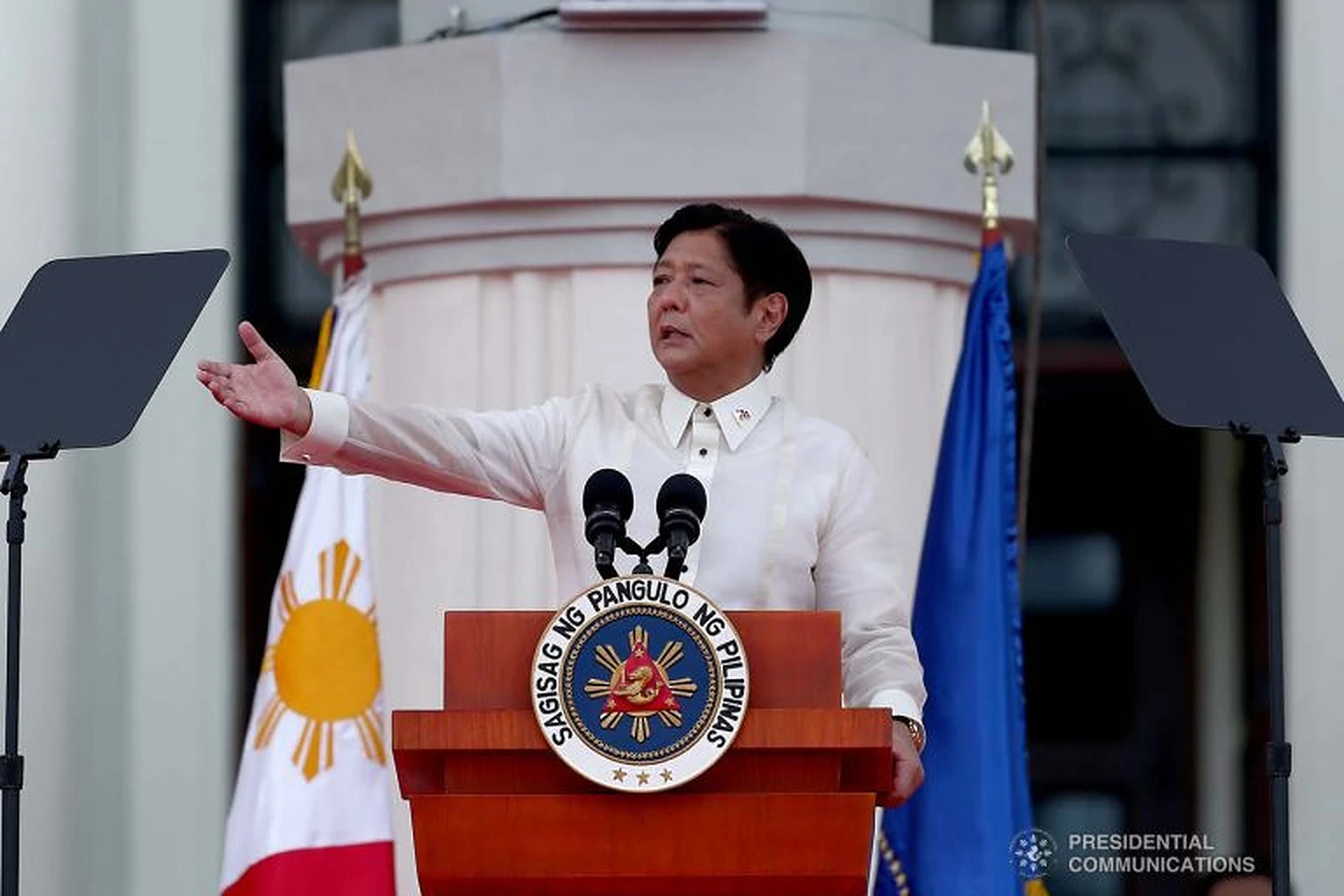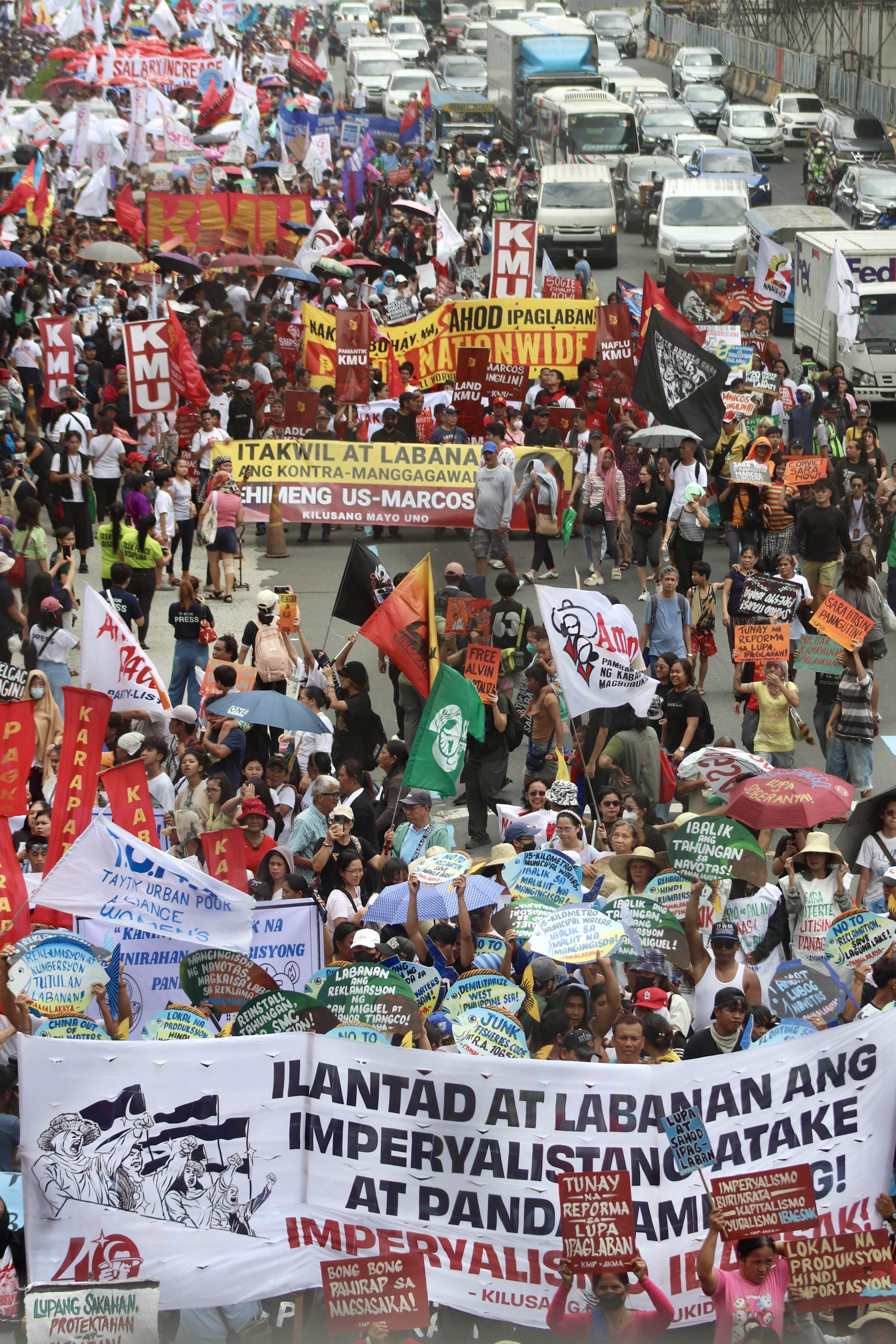The devil is in the details. It lurks in the guileful rhetoric that shrouds ill-natured pronouncements and policies. The promise of unity, the grandeur of progress, the return to the golden age—all of these were paraded by President Ferdinand Marcos Jr.’s first year in office. Reminiscent of the late dictator’s “Bagong Lipunan” slogan that underpinned his tyrannical project, Marcos Jr. continues the pursuit of distortion by repackaging and sanitizing his father’s failed programs under his overarching “Bagong Pilipinas” brand.
The state of the nation is sound, he proclaimed in his first State of the Nation Address (SONA) last year, while the country reeled from his predecessor’s atrocities. Justice for the victims of state-sanctioned killings remained elusive and the socioeconomic repercussions of the pandemic persisted. Fabricated narratives are propagated, manufacturing skewed justifications for his measures hinging on a perverted sense of nostalgia.
Marcosian myths can be gleaned from the titles of his prioritized measures. Named after his father’s illusory guerilla unit, the Maharlika Investment Fund (MIF) Act is replete with faults: the lack of clear rationale, its detachment to the needs of the country, and the risks for corruption. But how this bill was passed implies a far more sinister concern. Despite dissent from experts and citizens, the legislature proved itself subservient to the whims of the president. Signed by Marcos Jr. on June 18, this signals a detrimental precedent for other dubious bills.
One of the stripes in the Bagong Pilipinas logo supposedly represents the administration’s drive for “post-war agricultural and rural development.” But the flagship programs for agriculture the government insists on are mere revivals of Marcos Sr.’s catastrophic policies now being erroneously claimed as successful, like the Masagana 99 that devastated small peasants and Kadiwa stores that did not live up to their promise to farmers.
The current president also inherits the Marcosian playbook of imposing ill-natured programs by stifling contestations. Red-tagging, harassment, and killings still ensue. In his first year in office, at least 21 cases of enforced disappearance were recorded. A family of red-tagged peasants was massacred by the military just a month ago, evincing the persistent culture of impunity Marcos Jr. has no intention of eradicating.
There is, then, a greater imperative to look closely at the president’s thrust and identify what is being camouflaged in the public’s eye. In this series of articles, Collegian writers examine Marcos’s plans and shed light on their ramifications for affected sectors.
Three of the articles assessed some of the administration’s priority bills. In “The National Land Use Act’s False Promise of Food Security,” I showed how Marcos’s land use program, which he claimed is essential to achieving resources optimization and food security, would in reality worsen the landlessness of peasants and consequently stunt our country’s food production.
Luis Lagman’s “Build Better More’s Urban Grandeur not a Golden Ticket to a Developed Philippines” looked at how the president is continuing his father’s edifice complex, propounding a model of unsustainable infrastructure-based development that risks corruption and does not take the people’s needs into account.
In “Military Patronage at the Cost of Fiscal Collapse,” Kyle Adeva argued that Marcos Jr. should halt patronage of the military benefiting from a pension system that siphons too much from the public coffers. The article explained why the president should push for the reform curbing the exorbitant benefits funneled to military and uniformed personnel which now points to a possible “fiscal collapse.”
The education and health sectors, both of which are in grave crisis, were highlighted in the following two articles. Grace Mendoza argued in “The Health Sector Under Marcos Jr.’s First Year in Office” that the president only paid lip service to the health sector while barely any headway has been made among his promises.
Also devastated by the pandemic, the education sector is bound to suffer from a heightened educational crisis as immediate interventions lag. As contended by Ryan Maltezo in “Delays in Reforming the Education System Seen Under Marcos Jr.’s First Year in Office,” the repercussions of learning loss will compound as delays continue to hound the long overdue curricular review.
Unmasking the devil deeply implanted in the administration’s measures reveals that there is nothing novel in the new Philippines Marcos Jr. speaks of. It is a regurgitation of the same paradigm of development his father forwarded to conceal their family’s self-serving interests—repackaged to alter consciousness on past realities and deploy the reconstructed memories in legitimizing another reign founded on deception. ●







